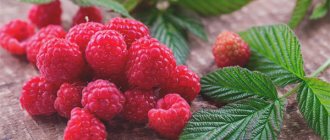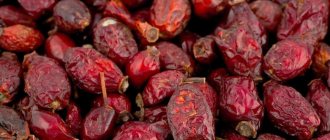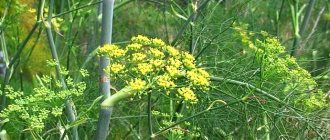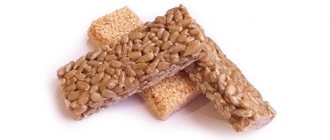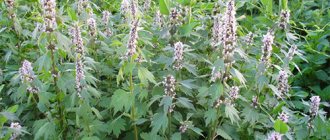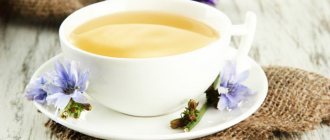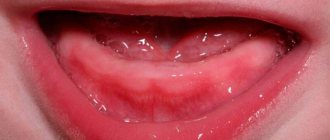Even in ancient times, thyme (thyme) was revered as a divine plant that had the ability to restore health and even life to a person. Thyme was especially popular among the Slavic peoples. Even during pagan times, our ancestors placed thyme on fireplaces. So they burned incense to the gods. In many villages and hamlets, thyme grass is still used today for fumigation of premises and more.
Villagers fumigate cowsheds and milk pots after the birth of calves. Children are bathed in thyme decoction to protect them from the evil eye. Thyme has properties that were mentioned in the works of Theophrastus and Avicenna; it is a truly miraculous plant. On its basis, medicines were made that Avicenna prescribed both to improve health and to raise the morale of soldiers. The ancient Egyptians used thyme to embalm the bodies of the deceased. Thyme herb and its medicinal properties: detailed in this article.
What are the benefits of thyme for children?
A decoction of thyme is added to baths for bathing newborns as a preventive measure for diaper rash and heat rash, as the herb has excellent antiseptic properties. Also, baths with thyme are indicated for rheumatism, rickets, and restless sleep in children. You can also use thyme decoction as a rinse for sore throat or stomatitis in young children. Thyme (thyme) is present in many expectorant syrups (bronchicum, pertussin), however, doctors recommend taking medicines containing thyme (thyme) extract orally for children starting from the age of two.
Impact on pressure
How does thyme affect blood pressure - does it increase or decrease it? The plant has antihypertensive properties, i.e. reduces blood pressure. Its diuretic properties help the body get rid of excess salts, water, and toxins.
The herb contains potassium, which is essential for body fluids and cells. Potassium helps regulate blood pressure and promotes heart health. To reduce hypertension, use thyme in cooking as a salt substitute. Also drink tea once a day.
Medicinal properties of thyme
Thyme herb has numerous beneficial properties. This plant contains useful substances such as gum, flavonoids, organic acids, resins, tannins, beneficial bitters, vitamins B and C, carotene, cymene and thymol.
Thyme is an excellent antiseptic, has anti-inflammatory, analgesic, antispasmodic, bronchodilator and expectorant effects.
Thyme (thyme) is very effective in the fight against diseases such as muscle and joint rheumatism, non-infectious rashes. To treat these ailments, take baths with the addition of thyme decoction. Such baths also help with bruises.
An essential oil containing up to 40 percent thymol and 15-20 percent carvacrol is obtained from the ground part of thyme (creeping thyme). Recent research by scientists has shown that carvacrol has an antiseptic effect that is stronger than eighteen of the most popular antibiotics.
Thyme essential oil is also used in cosmetology. It is successfully used to restore weakened hair, as well as in the fight against baldness.
In everyday life, thyme herb is used as a spice for pickling and soaking vegetables, as a seasoning for meat, vegetable, and fish dishes, as well as for flavoring cheeses, sausages, various sauces, jelly and tea. The top parts of thyme sprigs are used in cooking: they are added to sandwich butter, usually paired with tarragon. Thyme greens are added to food and as an independent seasoning, but more often thyme herb is still one of the ingredients in various herbal mixtures for side dishes. Thyme herb has found its use in the canning fish industry, as well as in cosmetics and soap making.
Collection and preparation
Recommended reading:
The herb thyme is collected, the medicinal properties of which are preserved only in the above-ground part, during the flowering period: from the last days of June to the first days of August. Cut off the flower stalks with the upper leaves with scissors, placing them carefully so that the sprouts do not become compressed. The medicinal collection should absolutely not be prepared with roots, so as not to spoil the turf - this will lead to the destruction of the honey plant.
To prepare green harvest for future use, you need to dry it, after sorting out and removing spoiled leaves and flowers. Experts do not recommend using dryers of various types for drying; it is better to use paper on which to lay the grass in a layer of up to 5 cm and dry it in a ventilated room without direct sunlight. It is permissible to bundle plants into small bunches for hanging to dry.
Important! Dryers evaporate essential oils from the honey plant, due to which the healing decoction will not have the necessary properties. But if thyme herb is needed urgently, you can dry the plant in the oven with the door open at a temperature not exceeding 35 C.
The drying process continues until the leaves begin to crumble when tossed, and the stems are not brittle; you get perfectly prepared thyme, the properties of which are completely preserved.
For storage, dry honey plants are hidden in glass jars, paper, woven bags or boxes made of compacted cardboard. It is best to store herbs in dark, ventilated areas. It is unacceptable to put raw materials in plastic bags; taking decoctions from such herbs is dangerous - the plant reproaches and completely changes its properties.
Recommended reading:
Shelf life, subject to collection and storage conditions, is 2 years.
Thyme for men
In addition to all the advantages described above, thyme has beneficial properties that help in the treatment and prevention of male diseases such as prostatitis and impotence.
Here are some recipes:
Tea with thyme
1 tablespoon of oregano, 1 tablespoon of mint and three to four tablespoons of thyme. Pour all this into a thermos, pour boiling water over it, and leave to steep overnight. You need to drink this tea regularly, periodically changing the herbal composition, except for thyme (instead of oregano and mint, you can add rose hips, linden, St. John's wort).
Baths with thyme (thyme). Strain the thyme decoction and add it to a bath of water. You can add other herbs to the thyme if desired.
Rubbing thyme oil into the perineal area also helps with male ailments. This method stimulates biologically active points and internal energy. The oil can be purchased at a pharmacy or prepared independently at home, for which the thyme herb is poured with refined deodorized vegetable oil (olive, sunflower) and infused for at least a month. Longer is better. You can also obtain thyme essential oil at home, but this process is quite labor-intensive.
Home Remedies
Thyme can be used to make homemade medicines: syrup, oil, tea, bath additive...
Syrup
The product in syrup form is an excellent remedy for treating cough, regardless of etiology. Add 500 g of honey to 600 ml of infusion (4 tsp, poured 250 ml of boiling water, steeped for 10 minutes). Take 5 ml per day.
Oil
To prepare massage oil to relieve muscle tension and pain, mix 10 drops of thyme and 5 tbsp. lavender oil.
Making thyme oil is easy. Place chopped fresh herbs in a glass jar and fill to the brim with olive oil. Close and leave in a sunny place for 3 weeks. Strain through cheesecloth and pour into a clean bottle.
Tea
1 tsp pour 250-300 ml of boiling water over the raw materials, leave to brew for 10 minutes under the lid. Take maximum (!) 3 times a day.
Dried herbs
Dried thyme is a good herbal antioxidant that protects against cardiovascular diseases, some types of cancer, and prevents premature aging.
It is an excellent source of iron, calcium, manganese and vitamin K. Fresh thyme provides the body with vitamin C.
Bath to relieve mental stress
Already in ancient times, people knew that thyme relieves mental stress and gives the body new energy. How to create an enjoyable, relaxing bath at home? Place 3 tbsp. herbs in 2 liters of cold water. Bring to a boil, cook for 3 minutes, leave for 10 minutes. Pour the liquid into the bath (water temperature – 37°C) and soak in it for 15 minutes. Then rest for 20 minutes.
Thyme for coughs and other ailments recipes
Infusion of common thyme
- Dried and crushed thyme herb - 1 tbsp.
- 1 glass of boiling water.
Pour boiling water over the herb, leave for half an hour, strain. Take two tablespoons three times a day for colds with the addition of a teaspoon of honey.
Creeping thyme decoction
2 tbsp. l. dry crushed thyme herb, pour one glass of water and boil for 1 minute. Leave for 1 hour in a warm place, strain. Take 1/2 cup three times a day after meals for allergies, diabetes, and furunculosis.
Infusion of blueberry shoots and common thyme
Pour 1 tablespoon of a mixture of herbs taken equally, pour a glass of boiling water and leave for half an hour, then strain. Drink for colds, hypertension, inflammatory processes, diabetes, anemia in two doses after meals.
Thyme decoction for baths
Pour 200 g of dried crushed raw materials with two liters of water and leave for two hours in a warm place. Strain. Take a bath with this decoction for 12 - 14 minutes for eczema, allergies, boils. Treatment should be carried out in a course (12 baths every other day).
For rheumatic pain
Chop the thyme, heat it, wrap it in gauze and apply hot. You can take aromatic baths, for the preparation of which you will need to boil 0.5 kg of thyme in 4 liters of water, then add it to a bath of water. A very effective remedy for rheumatism, arthritis, gout.
For inflammation of the sciatic nerve, lubrication with a mixture of thyme juice, cow butter and wine helps well. Herbal decoction (1 tbsp per 1 tbsp of water) perfectly stops bleeding from a fresh wound and cleanses the skin with minor rashes. An excellent remedy for dissolving and removing stones from the bladder. Thyme, boiled with rose oil and vinegar, is used as a rub for headaches.
Borovaya uterus tea: find out the healing properties
Therapeutic effects
What does thyme help with? What diseases does it treat? Its main therapeutic effects are as follows:
- Immune system support.
- Antibacterial effects.
- Antiseptic effects.
- Improved digestion.
- Stool stabilization.
- Restoration of intestinal microflora.
- Elimination of flatulence, abdominal pain.
- Treatment of urinary tract infections.
- Diuretic effect – removal of excess water from the body.
- Promoting gastric acid secretion.
- Treatment of skin diseases, wounds.
- Acceleration of sputum removal.
- Cleansing lung tissue.
Thyme during pregnancy
Any expectant mother understands how important a healthy lifestyle is during pregnancy. After all, everything that a pregnant woman does, one way or another, will affect her unborn child: be it exercise, nutrition or treatment. During the period of gestation, the body of the expectant mother bears a double load, resistance to various diseases decreases, and the risk of getting sick increases, especially in the autumn-winter period.
What should a pregnant woman do if she couldn’t protect herself from a cold? Doctors advise not to resort to the use of drugs of chemical origin, especially in the first trimester of pregnancy. Any therapist will recommend rinsing with herbal infusions, drinking plenty of warm water, and herbal teas.
But not all herbal teas are equally safe during pregnancy. The risk category also includes thyme grass. Despite all its popularity and multifaceted use in folk medicine, you should not take thyme during pregnancy, since some substances included in the herb can cause an increase in the tone of the uterus, which in turn poses a threat of miscarriage in the early stages, as well as premature delivery at a later stage.
Strengthening the immune system
Natural medicine helps strengthen the immune system. This effect is due to the content of a large amount of thymol, which provides antimicrobial properties and protects the body from bacteria, viruses, and fungi.
Antioxidants prevent oxidative damage to DNA in lymphocytes. The beneficial herb is a rich source of vitamins C and A, which the body needs to maintain a healthy immune system.
Thyme oil is effective against resistant strains of bacteria such as Staphylococcus, Enterococcus, Escherichia and Pseudomonas.
Thyme during lactation
During breastfeeding, thyme, on the contrary, can be useful. In annotations for herbal preparations and medicines containing thyme (thyme), pregnancy and lactation are indicated in the “contraindications” section.
However, if a nursing mother does not have enough breast milk, doctors also recommend teas with thyme, among other means to improve lactation. Whether or not to use thyme while breastfeeding is up to you, but it is best to consult your doctor or lactation consultant before making a decision.
“Codelac Broncho with thymus”
This is an antitussive drug with antiviral, anti-inflammatory action, which has the following effects:
- removal of phlegm;
- cleansing the respiratory tract;
- mucosal regeneration;
- inhibition of inflammation.
“Codelac broncho with thyme” is recommended for diseases of the respiratory system with cough, regardless of etiology:
- etiology:
- pneumonia;
- bronchitis;
- COPD;
- bronchiectasis.
The drug is taken with water 3 times a day. A single dosage is determined according to the patient's age. For children:
- 2.5 ml (up to 6 years);
- 5 ml (up to 12 years).
For adults – 10 ml.
Duration of treatment – 5 days.
The drug is not intended for:
- for pregnant and lactating women;
- for children under 2 years old;
- for people with intolerance to components.
Relative contraindications (take after consultation with a doctor) include:
- peptic ulcer;
- bronchial asthma;
- disorder of kidney and liver function.
Questions about the drug
- What kind of cough (dry or wet) does the medicine help with? “Codelac Broncho with thyme” is recommended for coughs with difficulty clearing the throat, i.e. dry
- What are the side effects of the drug, in particular in case of overdose? If the specified dose is exceeded, nausea, vomiting, intestinal disorders, and dyspeptic symptoms are possible. The solution is gastric lavage due to the lack of an antidote.
- Is the sediment that occurs during storage of the medicine harmful? No, a small amount of sediment is allowed (subject to the storage rules specified in the instructions for use).
Thyme contraindications
Thyme (thyme) is contraindicated in case of decreased thyroid function (hypothyroidism), pregnancy, cardiosclerosis, atrial fibrillation, atherosclerosis of cerebral vessels, and stomach ulcers.
Similar articles:
- Peppermint: its properties and benefits
- Corn silk: medicinal properties and contraindications
- Melissa officinalis: cultivation, collection and use
- Ivan-tea herb for health: what is Ivan-tea
- Use of yarrow in folk medicine
Healing properties of the plant
Thyme, or creeping thyme, is a perennial shrub widely used in the fields of folk medicine and cooking.
The medicinal properties of thyme are extensive, for example, some of them are:
The basis of thyme is a huge number of useful components:
Not all parents know, but thyme is also an effective cough remedy for children. The plant successfully fights bronchitis, whooping cough, and pneumonia. The healing herb has pronounced expectorant properties and is capable of removing phlegm from the bronchi. Accordingly, it is used in cases where a child has a cough of both dry and wet types.
